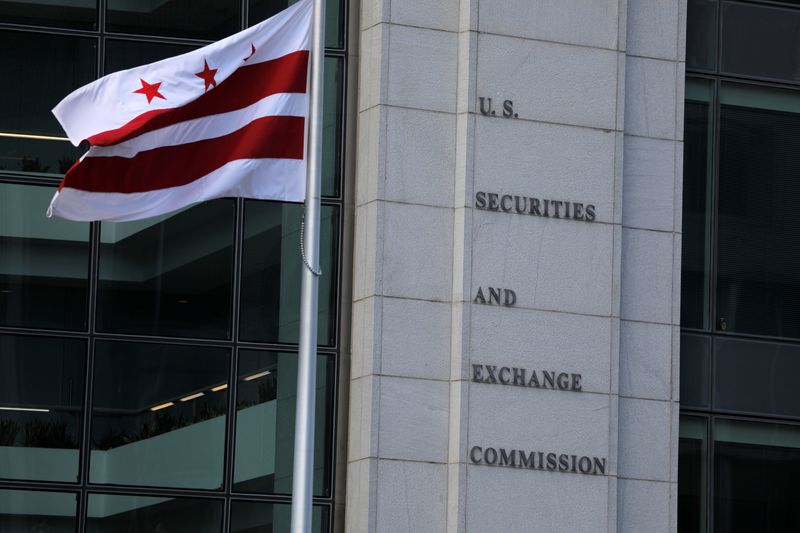By Michelle Price and Xie Yu
WASHINGTON/HONG KONG (Reuters) -U.S. accounting firms that agree to lead audits of New York-listed Chinese and Hong Kong companies looking to avoid potential trading bans risk breaching U.S. rules, the U.S. Securities and Exchange Commission (SEC) warned on Tuesday.
Worried they may be kicked off U.S. exchanges if China does not allow the SEC's accounting watchdog to vet Chinese company audits, some U.S.-listed Chinese and Hong Kong companies have recently switched their lead auditor from a local to a U.S. or other foreign firm, the SEC said.
"Such arrangements pose special challenges that raise questions about whether the newly engaged registered public accounting firms ... will be able to satisfy their responsibilities," the SEC's Acting Chief Accountant Paul Munter wrote.
Overseas auditors may not have the local knowledge, expertise, language skills or access to company personnel necessary to conduct rigorous audits, Munter noted.
U.S. regulators have for over a decade demanded access to audit papers of U.S.-listed Chinese companies, but Beijing has been reluctant to let overseas regulators inspect its accounting firms, citing national security concerns..
The U.S. passed its Holding Foreign Companies Accountable Act (HFCAA) in late 2020, which puts New York-listed Chinese companies at risk of being delisted if they fail to comply with U.S. audit rules for three years in a row.
While both sides agreed a preliminary deal last month to give the SEC's accounting watchdog, the Public Company Accounting Oversight Board (PCAOB), access to Chinese audit papers, it's unclear if that deal will work in practice.
Around 200 U.S.-listed Chinese issuers could be delisted if the deal doesn't succeed.
Some Chinese companies replaced China-based auditors in recent months with those outside of China, hoping picking auditors to which the U.S. regulators have sufficient regulatory access could remove the delisting risk.
Munter warned new lead auditors that they should acquire the company's audit papers from local predecessor audit firms and seek a range of information relating to, among other issues, the integrity of the issuer's management, any disagreements the auditor may have had with the company management, and previous communications with the company's audit committee.
Without such information, switching out auditors was "simply trading one bad outcome for another and does not adequately address the underlying problem," he added.
"This is a warning from the SEC that alternative audit engagement structures designed to avoid the uncertainty under the HFCAA entail investigation and enforcement risks from the U.S. regulators," said Jessica Zhou, partner at law firm White & Case, based in Hong Kong.
The SEC warning, among other things, reminds any retained lead auditors of their obligations under the applicable PCAOB standards, including "the production of any audit work papers upon any PCAOB inspection or investigative demand", she added.
That obligation links back to difficulties in complying with both U.S. rules and Chinese law.
China's securities law prohibits any entity or individual from sharing documents or materials in relation to the securities business with foreign parties without government approval.
The China Securities Regulatory Commission did not immediately respond to a request for comment on Wednesday.
